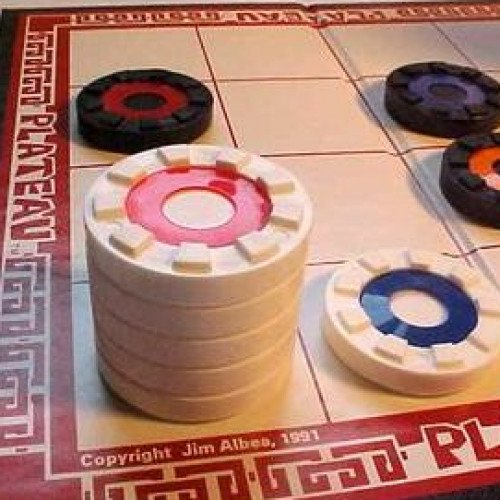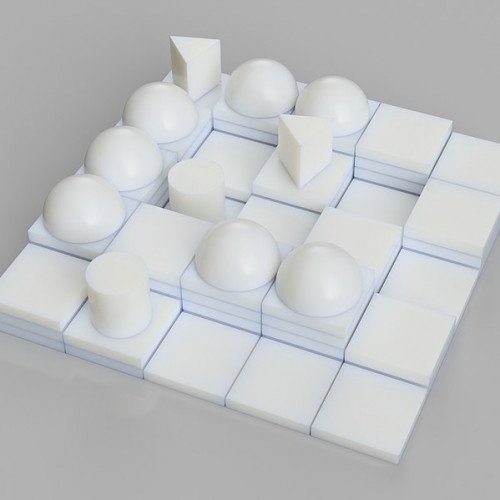PLATEAU VS SANTORINI

PLATEAU
Plateau is a two-player abstract strategy board game invented by Jim Albea. The game was developed over a two-year period culminating in its present form on May 12, 1986. The original name for the game was Pinnacle, but it was discovered that an older board/card game had that name, so around 1989 the name was changed to Plateau. From the 1980s through the 1990s Plateau was played at Science Fiction conventions mostly in the Southeastern United States. From the 1990s to the present, the game is played live at an online game site and via email. In 1997 a computer implementation of the game was created which facilitates email play and has a computer robot. Onboarding is adding one new piece to the play. This new piece can be placed anywhere that doesn't directly harm an opposing piece. For instance, you can onboard to any blank square or on top of any of your own pieces. The majority of Plateau moves are onboards. Instead of Onboarding or Moving, a player can choose to spend his turn exchanging prisoners. Prisoners are exchanged using the point values of the pieces. A simple value-for-value system is used. Since the pieces range in value from 1 point (for the mute) to 21 points (for the Ace) there are usually several combinations and options available for the players. The player initiating the exchange selects the pieces he wishes to exchange. These pieces will all add up to some point value. The responding player then has four options depending on the point values of the prisoners that he holds.
Statistics for this Xoptio

SANTORINI
Santorini is an abstract strategy board game for 2-4 players designed and released in 2004 by Gordon Hamilton and republished via Kickstarter in 2016 by Roxley Games. Inspired by the architecture of cliffside villages on Santorini Island in Greece, and primarily designed for two players, the game is played on a grid where each turn players build a town by placing building pieces up to three levels high. To win the game, players must move one of their two characters to the third level of the town. Each turn of play involves moving one of your two pieces around a 5-by-5 grid each turn and then placing a tile adjacent to the moved piece, building up that spot of the board. On subsequent turns, pieces may be moved onto one of these built-up tiles, but only one level up at a time. Pieces may also be moved down any number of levels. Players may also place a special dome tile on top of a three-level building, which prevents a player from moving onto that spot for the remainder of the game. The primary winning condition is to get one of your pieces onto the third level, though players may also win if their opponent is unable to make a move. The Roxley Games version of Santorini introduced a god powers variant, which gives each player a unique way to break the rules. After being directly released and sold by Hamilton in 2004, Roxley Games ran a Kickstarter campaign during March-April 2016, drawing over 7,100 backers and raising over C$700,000, the most successful Kickstarter campaign ever based in Alberta. While the original release used plain white blocks as components, the Roxley version featured an enhanced cartoon-like look to the game, which Hamilton credits for success of the Kickstarter campaign. The game was released in retail outlets in January 2017.